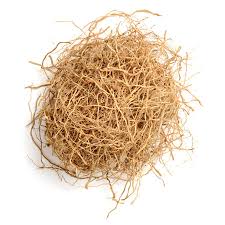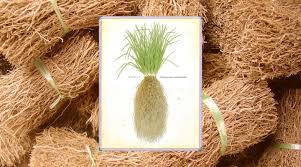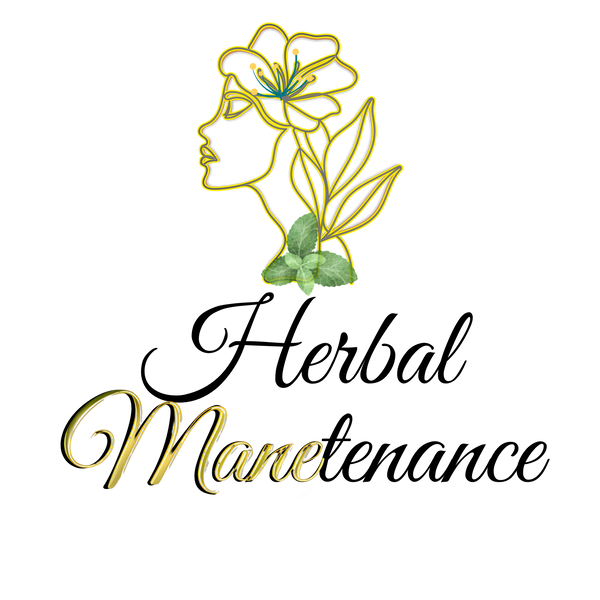Herbal Manetenance Ingredients
Vetiver Root
Vetiver Root
Chrysopogon zizanioides
Composition
Composition
- Sesquiterpenes: These are the main components, and their derivatives (alcohols, hydrocarbons, ketones) are also abundant.
- Khusimol: A significant component, often found in high concentrations.
- (E)-isovalencenol: Another major component identified in vetiver oil.
- Alpha-vetivone: A terpene found in vetiver oil.
- Vetiselinenol: A terpene alcohol.
- Alpha-cadinol: A triterpene alcohol.
- Benzoic acid: An organic acid.
- Vetiverol: A sesquiterpenol alcohol.
- Furfurol: A furan derivative.
- Iso-khusimol: A sesquiterpenol.
- Calacorene: A sesquiterpene.
- Beta-vetivenene: A sesquiterpene.
- Delta-selinene: A sesquiterpene.
- Beta-vetivone: A sesquiterpenone.
- Khusian-2-ol: A sesquiterpenol.
- Carbohydrates, Proteins, and Cholesterol:Research has shown that vetiver roots contain carbohydrates, protein, and cholesterol.
- Minerals:Vetiver grass contains minerals like calcium, phosphorus, sodium, and potassium.
- Essential Fatty Acids:Studies indicate the presence of essential fatty acids in vetiver grass.
- Anti-nutritional Factors:Vetiver grass also contains anti-nutritional factors like saponins, tannins, phytates, phenols, and oxalates.
- Variations:The nutritional content of vetiver grass can be influenced by factors such as growth stage, season, and soil conditions.
Origins
Origins
Vetiver root, known scientifically as Vetiveria zizanioides, originates from South Asia, primarily India, Sri Lanka, and Indonesia. While native to these regions, it is now cultivated in other tropical areas like Haiti, Brazil, and Madagascar. The plant's deep, aromatic roots are the source of the valuable essential oil used in perfumery and other applications.
Did you know?
Did you know?
Soil Erosion and Water Retention:
- Vetiver roots are known for their ability to bind soil, making them effective in preventing erosion and promoting water absorption.
- They can be planted as a hedge to create a barrier against soil movement, especially on slopes or along waterways.
- The dense root system also helps in creating terraces and trapping sediment when planted on contours.
- Vetiver root can act as a natural insect repellent, particularly for termites and mosquitoes.
- Burning the roots can release a fragrant smoke that deters insects.
- Vetiver oil can also be used as a natural pest deterrent.
Aromatherapy and Fragrance:
- Vetiver's unique and woody aroma makes it a popular ingredient in perfumes and cosmetics.
- It's also used in aromatherapy for its calming and grounding properties.
- Vetiver essential oil is steam-distilled from the roots and is known for its dark brown color and thick consistency.
- The aroma is described as sweet, heavy, and reminiscent of sweet, wet soil.
- In some cultures, vetiver roots were used to weave curtains, screens, and fans, which were then sprinkled with water to create a refreshing and aromatic atmosphere.
- The roots were also used to make roof thatching, window screens, and blinds.
- Vetiver oil was even used in an experiment to track mosquito locations during dry seasons in Sub-Saharan Africa, using dogs trained to detect the scent.
Other Uses and Properties:
- Vetiver root is used in Ayurvedic medicine for various purposes, including relieving thirst, cleansing the blood, and treating skin conditions.
- It's also believed to help with stress, emotional trauma, and other conditions.
- In the food industry, vetiver is a promising flavoring agent.
- Some studies suggest that vetiver may have antioxidant, antibacterial, and antifungal activities.
Share


Collapsible content
HAIR BENEFITS
Hair Growth:Vetiver may stimulate hair growth by improving blood circulation to the scalp and nourishing hair follicles. It's also believed to help strengthen hair strands, reducing breakage.
Hair Rejuvenation:Vetiver can help revitalize dull, lifeless hair by improving elasticity and promoting shine.
Hair Loss:Vetiver may help address hair loss and thinning by revitalizing damaged follicles.
Antioxidant Properties:Vetiver contains antioxidants that help eliminate free radicals, protecting hair from damage.
- Collagen Stimulation: Vetiver is rich in antioxidants and may help stimulate collagen formation, which is crucial for hair strength and elasticity.
- Strengthening: By strengthening hair strands, vetiver oil may help improve hair's lifespan and promote growth.
- Improved Shine and Texture: Vetiver can add shine and make hair appear healthier and more vibrant.
Other Potential Benefits:
- Aromatherapy: The calming aroma of vetiver oil can be beneficial for reducing stress and anxiety.
SCALP / SKIN BENEFITS
Scalp Benefits:
- Promotes Hair Growth:Vetiver oil can stimulate blood flow to the scalp, delivering essential nutrients and oxygen to hair follicles, potentially promoting hair growth.
- Reduces Inflammation:The anti-inflammatory properties of vetiver oil may help soothe scalp irritation and inflammation, which can contribute to hair loss.
- Manages Dandruff:Vetiver's antimicrobial properties may help combat dandruff-causing fungi.
- Strengthens Hair Strands:Vetiver oil may improve hair's lifespan and reduce breakage, leading to healthier, stronger hair.
Skin Benefits:
- Hydrates and Moisturizes:Vetiver oil can help improve skin hydration and reduce flakiness, contributing to a healthy skin barrier.
- Promotes Cell Regeneration:Vetiver oil may support skin cell regeneration, aiding in wound healing and reducing the appearance of scars and blemishes.
- Anti-inflammatory:Vetiver's anti-inflammatory properties can help calm skin irritations and reduce inflammation.
- Antiseptic:Vetiver oil's antiseptic properties may help prevent skin infections.


